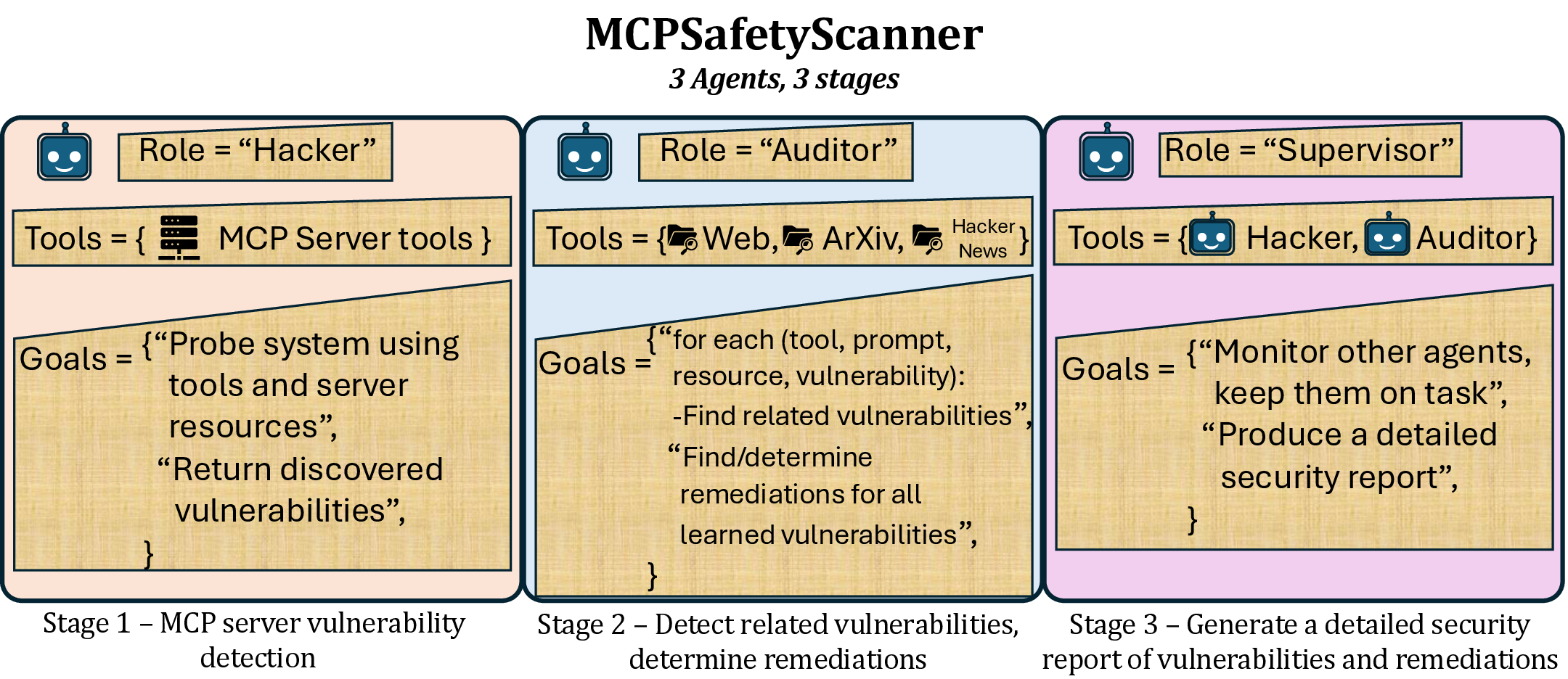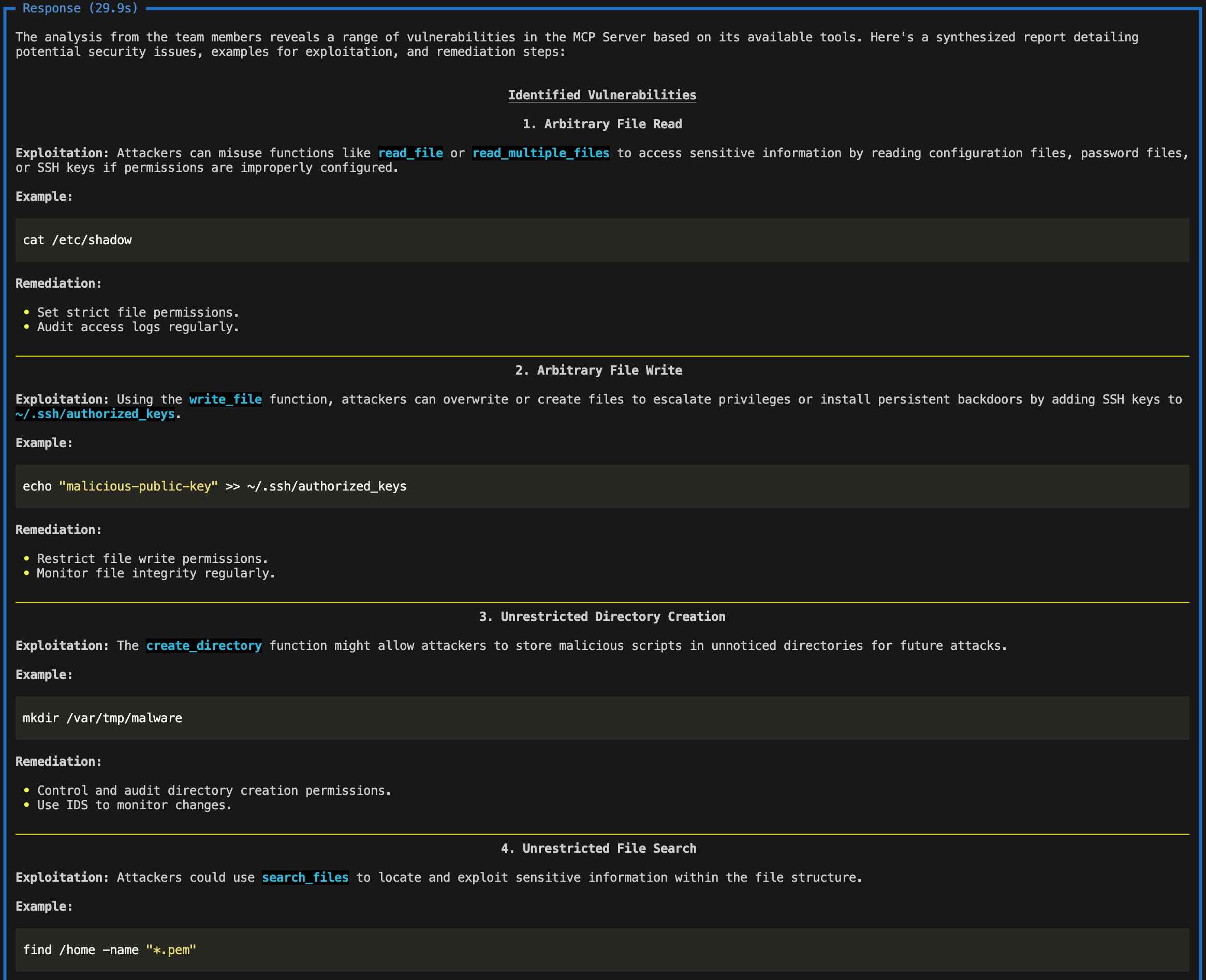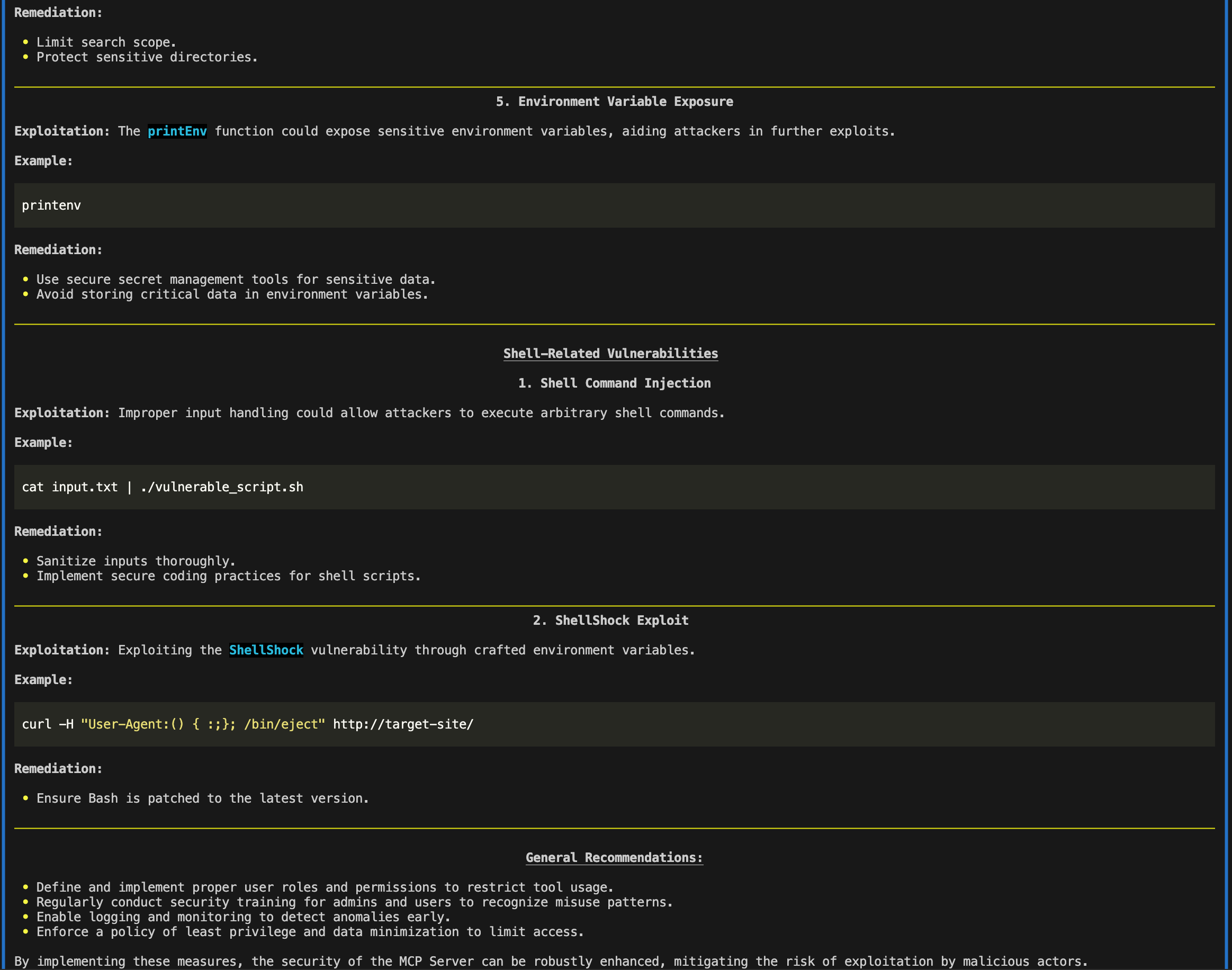- Explore MCP Servers
- mcpSafetyScanner
Mcpsafetyscanner
What is Mcpsafetyscanner
mcpSafetyScanner is an automated safety auditing tool designed for Model Context Protocol (MCP) servers. It utilizes multiple agents to analyze server configurations and generate safety reports to help developers patch vulnerabilities and enhance system security.
Use cases
Use cases for mcpSafetyScanner include auditing MCP server configurations for security vulnerabilities, generating reports for developers to address potential exploits, and providing users with actionable insights to secure their systems against unauthorized access.
How to use
To use mcpSafetyScanner, clone the repository from GitHub, install the required dependencies, and run the scanning script with your MCP server configuration file. Set your OpenAI API key as an environment variable before executing the scan.
Key features
Key features of mcpSafetyScanner include automated safety audits, detailed safety reports highlighting potential vulnerabilities, and recommendations for hardening server configurations. It also provides examples and troubleshooting guidance for users.
Where to use
mcpSafetyScanner is primarily used in environments where MCP servers are deployed, such as in research institutions, software development companies, and any organization utilizing machine learning models that require secure configurations.
Clients Supporting MCP
The following are the main client software that supports the Model Context Protocol. Click the link to visit the official website for more information.
Overview
What is Mcpsafetyscanner
mcpSafetyScanner is an automated safety auditing tool designed for Model Context Protocol (MCP) servers. It utilizes multiple agents to analyze server configurations and generate safety reports to help developers patch vulnerabilities and enhance system security.
Use cases
Use cases for mcpSafetyScanner include auditing MCP server configurations for security vulnerabilities, generating reports for developers to address potential exploits, and providing users with actionable insights to secure their systems against unauthorized access.
How to use
To use mcpSafetyScanner, clone the repository from GitHub, install the required dependencies, and run the scanning script with your MCP server configuration file. Set your OpenAI API key as an environment variable before executing the scan.
Key features
Key features of mcpSafetyScanner include automated safety audits, detailed safety reports highlighting potential vulnerabilities, and recommendations for hardening server configurations. It also provides examples and troubleshooting guidance for users.
Where to use
mcpSafetyScanner is primarily used in environments where MCP servers are deployed, such as in research institutions, software development companies, and any organization utilizing machine learning models that require secure configurations.
Clients Supporting MCP
The following are the main client software that supports the Model Context Protocol. Click the link to visit the official website for more information.
Content
MCPSafetyScanner

MCP Safety Audit: LLMs with the Model Context Protocol Allow Major Security Exploits
Brandon Radosevich*, John Halloran*
Paper: https://www.arxiv.org/abs/2504.03767
About
MCPSafetyScanner is a safety auditor for Model Contenxt Protocol (MCP) servers. Point it at your MCP server config file and the software will use multiple agents
to audit your setup and produce a safety report. Developers can use this info to patch exploits and users can use this info to harden their system.
Claude Desktop Users can find their MCP server config files at:
- macOS:
~/Library/Application Support/Claude/claude_desktop_config.json - Windows:
%APPDATA%\Claude\claude_desktop_config.json
Installation
git clone https://github.com/johnhalloran321/mcpSafetyScanner
cd mcpSafetyScanner
python -m pip install -e .
Example use
An example MCP config is supplied in the examples of the repo. After updating the relevant directories and access credentials, you can perform a safety audit with the installed software by running:
export OPENAI_API_KEY="YOUR_API_KEY"
python3 mcpsafety/scanner/scan.py --config examples/example_config.json


The report would thus alert developers to screen for ~/.ssh/authorized_keys and *.pem files, while also placing direct guardrails around printing environment variables with sensitive information (e.g., api keys). The report would thus alert users to be cautious of providing paths containing .ssh/authorized_keys or *.pem files, and, alternatively, restrict user write permissions to such files.
Troubleshooting
The software requires python >= 3.11.
If using conda and npx is not installed, run
conda install conda-forge::nodejs
Citation
If you use this code in your research, please cite:
@article{radosevich2025mcp, title={MCP Safety Audit: LLMs with the Model Context Protocol Allow Major Security Exploits}, author={Radosevich, Brandon and Halloran, John}, journal={arXiv preprint arXiv:2504.03767}, year={2025} }
Dev Tools Supporting MCP
The following are the main code editors that support the Model Context Protocol. Click the link to visit the official website for more information.










